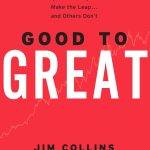
Customers say
Customers find the book provides interesting and factual information about two great warriors. They describe it as an enjoyable, educational read with excellent writing that makes the history come alive. Readers appreciate the thoughtful character study and detailed explanations of the two men’s lives. The book draws parallels and contrasts between their lives, providing a thorough and objective account of their lives.
Make It Yours – See Your Price On Amazon!
Your Sales Price $22.00 - $13.19
A quick rundown of this product’s key features:
The full story of what led Crazy Horse and Custer to that fateful day at the Little Bighorn, from bestselling historian Stephen E. Ambrose.
On the sparkling morning of June 25, 1876, 611 U.S. Army soldiers rode toward the banks of the Little Bighorn in the Montana Territory, where 3,000 Indians stood waiting for battle. The lives of two great warriors would soon be forever linked throughout history: Crazy Horse, leader of the Oglala Sioux, and General George Armstrong Custer of the Seventh Cavalry. Both were men of aggression and supreme courage. Both had become leaders in their societies at very early ages; both had been stripped of power, and in disgrace had worked to earn back the respect of their people. And to both of them, the unspoiled grandeur of the Great Plains of North America was an irresistible challenge. Their parallel lives would pave the way, in a manner unknown to either, for an inevitable clash between two nations fighting for possession of the open prairie.
Our Top Reviews
Reviewer: Anthony(Tony) Riggio
Rating: 5.0 out of 5 stars
Title: Great Contrast Between to Warriors
Review: January 19, 2019A Review by Anthony T. Riggio of the Book: Crazy Horse and Custer: The Parallel Lives of Two American Warriors by Stephen E. AmbroseI purchased this book in Kindle Format from Amazon in November 2018 and finally got a moment to read it. I have read other books by Stephen Ambrose but never reviewed them, and my readings were several years ago. I knew this would be a superbly researched and well written book about a major event in American History. I never fail to add to my knowledge of History, especially from a great author like Stephen Ambrose.I had, several years ago, read Custer auto biographical work entitled my “life on the Plains” which gave me some good insight into Custer’s character and consequently as an auto biography, it was not too revealing of his flaws but was a very good read.Ambrose is a master historian and this “Crazy Horse and Custer” work shows thorough research and gives glimpses into both the Native Indian’s culture and philosophy of life and he even touched on something I was not aware of, namely that certain males were considered “special” implicit was that they were effeminate and therefore not suited for being warriors but did play advisory roles as both medicine men and educators.Being a warrior was the essential way the young males showed their value to the tribe which it seems were always at war even way before the white man’s arrival. War for them was not “total” but enough to be able to claim a victory. A battle that resulted in more than a couple of casualties was rare before one side or the other was able to claim a win. Crazy Horse was a fierce warrior from his youth and would, many times over think strategies and hunting plans. He was very much an introvert and a thinker, not a chief but a respected warrior.George Armstrong Custer, was a contemporary of Crazy Horse but became a warrior through education at West Point. His appointment to West Point was an interesting story being his lineage was not one ofprivilege or breeding. He was naturally intelligent but manifested a concentrated effort to get in to West Point. Once he was admitted he demonstrated a bit of a “slacker” effort and was always in disciplinary trouble but never to the point of expulsion, but too close for comfort. His academic achievement were nothing to write home about and graduated at the bottom of his class.He graduated early as the Army was in need of officers for the Civil War. In the Army, Custer was always affable, in spite of his being a Democrat which impacted on his Army career. He was terribly ambitious and heroically motivated and resulted in several notorious reports about his Calvary accomplishments. He rose to the rank of Brevet Major General but after the War his permanent rank was Lieutenant Colonel. He remained in the Army and was assigned to the Calvary in the Plains.His life paralleled Crazy Horses life but the contrast and differences between them was superbly laid out by Ambrose. One easily concludes the differences and the fact tat these two warriors would meet in combat. They were destined to meet. Both, however, were to die violent deaths at different points in time in conflicts with both their respective tribes.If you are attracted to historical events and people and a better understating of the conflicts between the Whites and Indians, I highly recommend reading this book. I gave this book five (5) stars out of five.
Reviewer: Ravzender
Rating: 4.0 out of 5 stars
Title: A wonderful side-by-side biography
Review: This was an interesting read as Stephen Ambrose did a side-by-side biography of Crazy Horse and Custer. It was interesting to see the comparisons between the two. He used some long chapters at times, which could have been broken down. There is a lot of reading and very little empty space on the screen. If you want to know about these two men, this is a great place to start.This version is not formatted with page numbers or time left to read already enabled.
Reviewer: Walter Stanley
Rating: 5.0 out of 5 stars
Title: Well-written, informative, and important history
Review: Having been a child in the 50’s, when every third show on TV was a western, I have always had an interest in finding out what the frontier west was really like. In the movies, the Indians happily ride around fortified positions being shot from their horses in droves. Had the Indians actually fought like that, then Captain Fetterman could have ridden down the entire Sioux nation with a force of eighty soldiers, as he boasted just before his force of that size was wiped out. In actual encounters with the Sioux, the army never had decisive victories except when they invaded sleeping villages. As is well known by people who bother delving into genuine history, the buffalo hunters who nearly exterminated the buffalo, and the trains that hauled the hides back east that made that slaughter profitable, were responsible for the defeat of the Sioux.Many, many white Americans boast of having had a Native American ancestor in their distant past, including me, one-eighth Cherokee. So when you watch, for instance, the 1954 version of SITTING BULL on Youtube, for instance, there are multiple comments praising the realism of the show because it is sympathetic to the Indians, even though that particular show’s depictions of Sitting Bull, Crazy Horse, President Grant, and Custer are utter poppycock.Custer was a far more fascinating man than I expected. He had incredible physical stamina, and was also, as expected, of exceptional courage as well as a great leader of men. There is a good chance that he would have become president, had he not been defeated at Little Bighorn. Though I have read accounts that dismissed him as an alcoholic, he became a teetotaler shortly after meeting his future wife, Elizabeth Bacon. The loving relationship that he enjoyed with her was so lyrical as to be hard to believe if it were not preserved in their copious letters and journals. Most accounts of Custer deal only with his defeat, and only mention in passing his great success in the Civil War. This success was due more to his bravery and willingness to take chances – and willingness to sacrifice the lives of the men serving under him – rather than his competence as a strategist. Being not introspective, he did not know that. Custer lost at the Little Bighorn because of mistakes he made, understandable mistakes given his limited experience of Indians and misconceptions of Indians common to all whites. He was not grossly incompetent, nor can he be accused of disobeying orders, as those orders permitted him a lot of leeway.Crazy Horse also had incredible physical stamina and bravery. The details of his life come mostly from old men who lived with Crazy Horse being interviewed decades later by white historians, so they are not so abundant. One thing that stands out clearly is the difference in attitude to wealth between Native Americans and whites. The great men of the tribe are revered because they share their wealth, and that is one of the reasons they are revered. Whites are revered because they accumulate and horde great wealth. The Indians were given two choices by the whites, surrender to live in poverty and starvation on the agencies (because the food and other provisions the government promised them in return for their stolen lands was mostly stolen by corrupt officials), or remain hostile and starve because the buffalo had mostly been slaughtered. The theft of the Indians’ land was justified at the time, and still is today, because it required too much land to support the Indians’ lifestyle. This is still the argument given today for the destruction of the natives living in the Brazilian rain forests: an excessive amount of wealth is in the hands of too few people. So it is either necessary to kill these people, or imprison them on reservations. This was also the argument of the Bolsheviks in the Russian revolution, and Maoists in China. If coveting other peoples’ property and killing them to get it is equally justifiable, or heinously unjustifiable, in both cases.
Reviewer: Jayare
Rating: 5.0 out of 5 stars
Title:
Review: The quality of writing and research here is what gives Stephen Ambrose his most deserved reputation as a military historian. Crazy Horse and Custer is thoroughly researched to the point of having the intuitive understanding of the warrior’s mindset of each and the mindset of their lieutenants as well. While the text may be slow to start, knowing the background was essential to moment that Ambrose starts dealing with the looming conflicts. While not judging either side, this work shows the strengths and weaknesses of a rather unsettling period in Turtle Island/ American history. Highly recommended…
Reviewer: B. T. Jorgensen
Rating: 5.0 out of 5 stars
Title:
Review: This is first book I have read that is about the American Indian wars. I found it to be both an informative and enjoyable read. The author has struck a good balance in describing the lives of the two main characters and the attitudes that existed in the USA at that time. I would recommend this book to anyone who wishes to learn more about the conflicts that opened up the American West.
Reviewer: Jarbas Ladeira
Rating: 4.0 out of 5 stars
Title:
Review: O livro mostra como o excesso de confiança e o desprezo pelo adversário conduziu o General Custer a uma sangrenta derrota contra Crazy Horse. Interessante relato que li com interesse até o fim.
Reviewer: Luke Holliday
Rating: 5.0 out of 5 stars
Title:
Review: Interesting and informative, enjoyed the book and will read it again
Reviewer: Thoth and Seshat
Rating: 4.0 out of 5 stars
Title:
Review: Good book, giving insight into lives of two men destined to become enemies. bit wordy in places but nevertheless revealing.
Price effective as of Mar 29, 2025 16:05:26 UTC
As an Amazon Associate Dealors may receive a commission for purchases made through these links.









